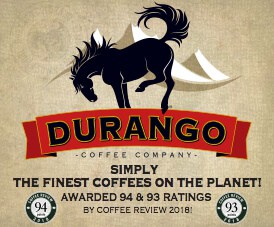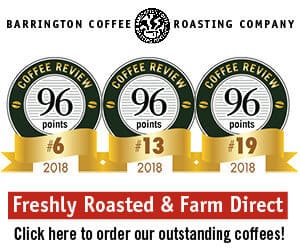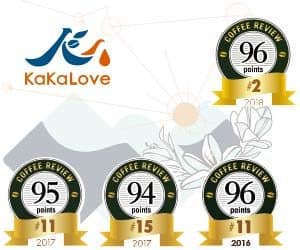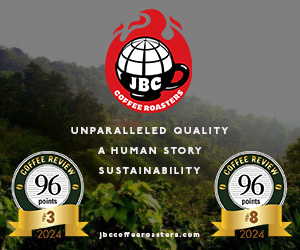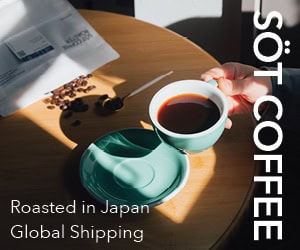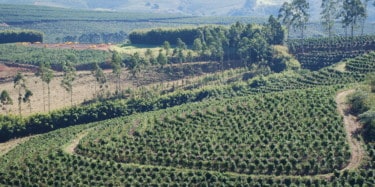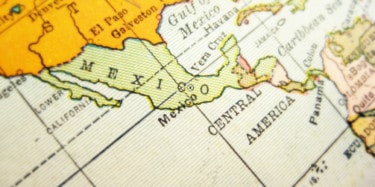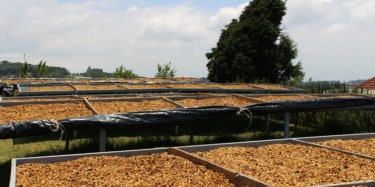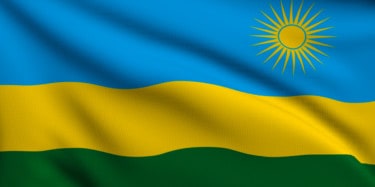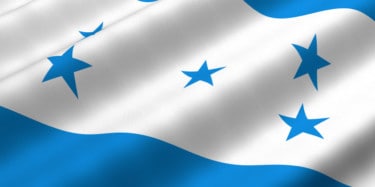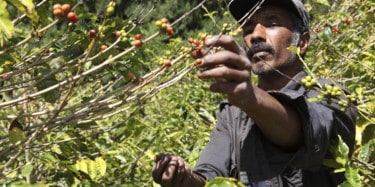This exceptional coffee was selected as the #26 coffee on Coffee Review’s list of the Top 30 Coffees of 2016. Produced from trees of the Yellow Bourbon variety of Arabica. A “natural” or dry-processed coffee, which means the beans or seeds were dried encased in the entire fruit. Naturals form the backbone of the Brazil coffee industry, but this lot reflects a particularly refined approach to the
SEARCH RESULTS
Brazil Naturals: Tradition Meets Trend
Although Coffee Review has published a number of articles over the years focusing on coffees from Brazil, we have never specifically focused on the coffee type generally called “Brazil naturals”: Brazil coffees of the Arabica species that have been dried inside the fruit rather than after the fruit has been removed (as is the case with conventional “washed” or wet-processed coffees). Brazil
Panama Auromar Geisha Natural Peaberry
This exceptional coffee was selected as the No. 11 coffee on Coffee Review’s list of the Top 30 Coffees of 2015.With its bold, boat-shaped beans and distinctive floral and crisply cacao-toned cup, the Gesha (also Geisha) variety of Arabica continues to produce some of the world’s most unique coffees. This is a dry-processed or “natural” Gesha, meaning the beans were dried inside the fruit rather
Traditional Coffees of Central America: Quest for the Classic
We’ve seen two conflicting, yet overlapping, trends at the growing end of specialty coffee over the past decade. On one hand, greater and greater homogeneity. Traditional coffee tree varieties, varieties that may not taste unique, but do taste subtly different, are being replaced by disease-resistant, higher-yielding varieties that incorporate robusta genes and, well, usually don’t taste different
Manzano Natural El Salvador
Topeca Coffee acquired Manzano farm in 2001. The farm produces Strictly High Grown (SHG) grade coffee and is also home to the company’s state-of-the art micro-mill, Cuatro M Cafés, where Topeca processes all of its seed-to-cup coffees. This is a dry-processed or “natural” coffee, meaning the beans were dried inside the fruit rather than after the fruit has been removed, as is the case with
Kenya Karani AA
This coffee was produced from trees of the admired heirloom SL28 and SL34 varieties of Arabica, as well as the hybrid Ruiru 11, and processed at the Karani wet mill. Despite challenges ranging from unclear government coffee policy and urban encroachment on prime coffee lands to chronically unstable weather, the famed Kenya coffee auction system and its participating cooperatives continue to
Rum-Barrel Conditioned Ethiopia Gelena Abaya
This exceptional coffee was selected as the No. 7 coffee on Coffee Review’s list of the Top 30 Coffees of 2015. This is the first in a series of experiments by OQ involving holding high-quality green coffee in rum barrels to create unusual, in this case striking, rum-influenced profiles. This is a dry-processed or “natural” coffee, meaning the beans were dried inside the fruit rather than after
Nicaragua Pacamara Reserve Los Congos
This exceptional coffee was selected as a tie for the #29 coffee in the Coffee Review Top 30 Coffees of 2014. This lot is comprised entirely of the much admired, bold-bean Pacamara variety of Arabica, a cross between the giant-beaned Maragogipe variety and Pacas, a selection of the heirloom Bourbon. This is a dry-processed or “natural” coffee, meaning the beans were dried inside the fruit rather
Honey and Natural Process Coffees, Central America 2014
Nine years ago I organized a panel for the Specialty Coffee Association of America called “Using Alternative Processing Methods to Create Product Differentiation: Perspectives and Opportunities.” Presented in Spanish and English, it attracted around five hundred coffee producers and roasters. The overall premise of the panel was simple: coffee is no longer a commodity beverage but a specialty
Rwanda and Central Africa: Sweet and a Hint of Savory
Perhaps a more accurate geographical descriptor for the coffee origins we focus on this month may be African Great Lakes coffees rather than Central Africa coffees. The growing regions that produced almost all of the thirty coffees we cupped this month are clustered around or near the gigantic lakes that dominate the geography of the mountainous central-east region of Africa, at or near the
El Salvador Coffee
Courtesy of Kenneth Davids, 21st Century Coffee: A Guide El Salvador has suffered through a tumultuous coffee history, with periods as one of the world’s leading coffee producers (fourth or fifth in volume in the world in the early 1970s) through a murderous civil war in 1980–92 during which right-wing death squads assassinated leaders of coffee cooperatives (among many others), to a more recent
Ethiopia FTO Worka
This exceptional coffee was selected as the #6 coffee on Coffee Review’s list of the Top 30 Coffees of 2014. This coffee is certified organically grown and Fair Trade certified, meaning it was purchased from small-holding farmers at a "fair" or economically sustainable price. It is an unusually refined example of a dry-processed or "natural" coffee, meaning the beans were dried inside the fruit
Ethiopia Ninety Plus Pheribo N2
This exceptional coffee was selected as the #18 coffee on Coffee Review’s ranking of the Top 30 Coffees of 2014. This Yirgacheffe is an extraordinarily refined version of a dry-processed or "natural" coffee, meaning the beans were dried inside the fruit rather than after the fruit has been removed, as is the case with wet-processed or "washed" coffees. Ninety Plus is a very distinguished boutique
Ethiopia Yirgacheffe Kochere Aricha
This exceptional coffee was selected as the #24 coffee in the Coffee Review Top 30 Coffees of 2013. Yirgacheffe is a coffee region in southern Ethiopia that produces distinctive coffees from traditional varieties of Arabica long grown in the region. This is a “natural” or dry-processed version, meaning the beans were dried inside the fruit, encouraging a flavor profile that is rounder and
Finca El Manzano Bourbon Natural El Salvador
This exceptional coffee was selected as the #30 coffee in the Coffee Review Top 30 Coffees of 2013. Bourbon is one of the oldest and most respected of traditional heirloom varieties of Arabica. This is a dry-processed or "natural" coffee, meaning the beans were dried inside the fruit rather than after the fruit has been removed, as is the case with wet-processed or "washed" coffees. Topéca Coffee
A Focus on the Classic: Coffees of Honduras
With this review of coffees from Honduras the excitement may reside more in the story than in the cup itself. The story is how this Central American nation, long considered mainly a source of low-to-decent quality, commercial-grade coffees, has stepped up over the past five years or so and is producing significantly better coffees and more of them. Of the eighteen Honduras coffees we were able to
El Salvador El Nazareno
Produced on Llamatepec Farm from trees of the heirloom Bourbon variety of Arabica. A “honey” coffee, meaning the skin was removed from the coffee fruit immediately after picking but the beans or seeds were dried with at least some of the fruit pulp or “honey” still adhering to them. This practice contrasts to the more conventional wet or washed method, wherein both skin and pulp are removed from
Sumatra Wahana Natural
This exceptional coffee was selected as the #21 coffee in the Coffee Review Top 30 Coffees of 2013. This is a dry-processed or "natural" coffee, meaning the beans were dried inside the fruit rather than after the fruit has been removed, as is the case with “wet-hulled” coffees more typical of northern Sumatra. Wahana Estate is a relatively new coffee farm in the classic Lintong growing district
Three Trends at the Cusp of the New Year
As the New Year settles in I thought it might be worthwhile revisiting some interesting coffees recently reviewed outside the framework of our monthly review articles. All but one were reviewed in either December 2012 or January 2013, and all reflect in one way or another ongoing trends at the top end of the specialty coffee business. Kenya Endures Or more than endures; continues producing
Old Farmers, Migration, and the Decline of Agriculture as We Know It
No one is talking about what happens at home as young men increasingly migrate to urban and cross-border jobs – and it’s not just in Mexico. Census studies in many countries indicate that there is an increasing proportion of people over 50 in rural areas. In fact one study suggests that the average age of farmers in Latin American countries will be over 50 and not expected to decline. What does



